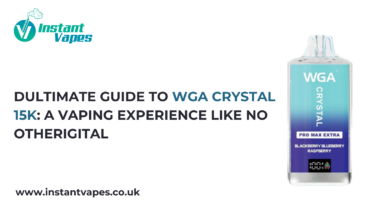How to sell a car that has been deregistered: A guide
Looking to part ways with your deregistered car? You’re not alone. Whether it’s due to upgrading, downsizing, or simply moving on, selling a deregistered vehicle can seem daunting. But fear not!
In this guide, we’ll walk you through the process step by step, making it as simple as possible. From understanding the reasons behind deregistration to navigating paperwork and finding potential buyers, we’ve got you covered. So, if you’re ready to turn your old wheels into cash, stick around and let’s dive into the world of selling a deregistered car.
Understanding Deregistration
Deregistration simply means your car is no longer officially recognized as a road-going vehicle. It’s a bit like taking it off the “active duty” list, making it not eligible for regular use on the roads.
Reasons for deregistration in Australia:
Cars get deregistered for various reasons. Common ones include when a vehicle is damaged beyond repair, scrapped, or if the owner decides they no longer want to use it. Understanding why your car was deregistered helps in the selling process.
Importance of knowing the deregistration status:
Knowing if your car is deregistered is crucial. It impacts the selling process and helps potential buyers understand the history of the car. It’s like knowing if a book is new or has been read before – it gives you an idea of what to expect.
Preparing Your Deregistered Car for Sale
Getting your deregistered car ready for sale is a crucial step in attracting potential buyers. Start by making sure your car is in good shape for its new owner. Address any needed repairs and maintenance to enhance its appeal. If necessary, obtain a roadworthy certificate to show that your car meets safety standards, giving buyers confidence in their purchase. These simple steps can significantly increase your chances of selling your deregistered car smoothly and at a reasonable price.
Navigating Paperwork
Navigating paperwork when selling a deregistered car may seem like a maze, but fear not! Begin by gathering essential documents like the deregistration certificate, which says your car is off the road, the roadworthy certificate proving it’s safe, and the service history showing its past care.
Essential documents:
- Deregistration Certificate: Confirms your car’s off the road status.
- Roadworthy Certificate: Ensure your car is safe for the new owner.
- Service History: Details past maintenance, giving buyers confidence.
Tips on Organising paperwork efficiently:
Keep documents in one place, making it easy to find. Consider a folder or envelope. It saves time and helps everything stay neat.
You are reading this blog on wingsmypost.
Understanding buyer expectations and legal requirements:
Buyers want honesty, so share all documents and information. Knowing legal requirements ensures a smooth, trouble-free sale.
Before selling, do a “Rego check.” It’s like a car history report that can give buyers peace of mind.
Setting a Realistic Price
Setting the right price for your deregistered car is crucial for a successful sale. Begin by checking what similar cars are going for in the market. Consider factors like the car’s condition, mileage, and other features. Take note of the average prices you find.
Researching market value for similar deregistered cars:
Look online or ask around to see how much other cars like yours are being sold for. This helps you understand the general market value and sets a starting point for your pricing.
Factors influencing the price (condition, mileage, etc.):
Understand that the condition of your car plays a big role in determining its value. Mileage, age, and any additional features also impact the price. Be realistic about your car’s overall condition.
You are reading this blog on wingsmypost.
Calculating a fair and attractive selling price:
After considering market trends and your car’s condition, calculate a price that’s fair to both you and potential buyers. A reasonable and attractive price increases the chances of a quicker and smoother sale.
Finding Potential Buyers
Selling your deregistered car? Time to connect with potential buyers! Start by tapping into online platforms like classified websites where buyers often hunt for deals. Create a catchy listing that highlights your car’s key features, ensuring you stand out.
Use online platforms:
Online platforms provide a broad reach for your ad. Websites like Gumtree and CarsGuide allow you to showcase your car to a wide audience. Be sure to include clear photos and a detailed description, emphasising the positives while being honest about any drawbacks.
Networking within local communities
Spread the word closer to home! Inform friends, family, and local acquaintances about your deregistered car for sale. Word of mouth is a powerful tool, and someone in your community might be on the lookout for a budget-friendly vehicle. Attend local events or community gatherings to broaden your reach.
Tips on advertising effectively and honestly
When advertising, honesty is key. Highlight your car’s strengths but be transparent about its deregistered status. Clearly mention any repairs needed and the reason for deregistration. This builds trust with potential buyers, increasing the likelihood of a successful and fair transaction.
To make selling even easier, consider “Car removal Sydney” services—they handle both the sale and removal hassle-free!
Negotiating the Sale
Negotiating the sale is a crucial step in selling your deregistered car. When potential buyers come knocking, be ready to answer their questions and navigate the negotiation process with confidence.
Responding to Inquiries and Questions:
When buyers inquire about your car, promptly respond with honest and clear information. Address their questions about the car’s history, condition, and reasons for deregistration. Quick and straightforward responses build trust and keep the conversation flowing.
Transparent Communication about Deregistration:
Be open about the car’s registration status. Explain why it was deregistered, emphasising any repairs or maintenance you’ve undertaken. Transparency builds trust and helps buyers feel more comfortable, reducing the chances of surprises during the negotiation or after the sale.
Handling Negotiations Confidently and Fairly:
Approach negotiations with confidence, but also be fair. Know your car’s value and be willing to justify your asking price. Be open to reasonable offers and negotiate in a friendly manner. A fair and transparent negotiation sets the stage for a positive and successful sale.
Closing the Deal
Closing the deal marks the exciting final stretch of selling your deregistered car. Once you and the buyer agree on the terms, it’s time to wrap things up smoothly.
Finalising paperwork with the buyer:
Ensure all necessary documents are in order. This includes the deregistration certificate, roadworthy certificate, and any service history. Double-check details and sign where needed. This step helps both parties avoid any future complications.
Providing a sales receipt:
Create a simple sales receipt that includes basic information such as the date, buyer’s and seller’s names, vehicle details, and the agreed-upon price. Both parties should keep a copy for their records. This document serves as official proof of the transaction.
Handing over the keys and transferring ownership:
Physically hand over the car keys to the buyer. Ensure they understand the process of transferring ownership. In Australia, this often involves completing a notice of disposal to inform the transport authority about the change in ownership. This step is crucial to avoid any liabilities associated with the car after the sale.
By following these straightforward steps, you’ll successfully close the deal, providing a smooth transition for both you and the new owner.
Post-Sale Considerations
After selling your deregistered car, there are a few important things to take care of to ensure a smooth post-sale transition.
Cancelling insurance and registration: Contact your insurance provider to cancel your car insurance policy. Also, inform the relevant motor vehicle authority to cancel the registration of the vehicle. This helps avoid any future liabilities or fines associated with the car.
Notifying relevant authorities about the sale: Inform the motor vehicle registry or transport authority about the sale of your car. This ensures that you are no longer held responsible for any fines, tolls, or other obligations related to the vehicle.
Additional tips for a smooth post-sale transition: Keep copies of all documents related to the sale for your records. It’s also a good idea to transfer any remaining warranties or service agreements to the new owner if applicable. Finally, make sure to remove any personal belongings from the car before handing it over to the buyer.
Conclusion
In wrapping up this guide, remember that selling a deregistered car in Australia is a manageable process. By understanding the steps, preparing your vehicle, and navigating paperwork, you’re well-equipped for a successful sale. Stay transparent, find the right buyer, and bid farewell to your car with confidence. Happy selling!



